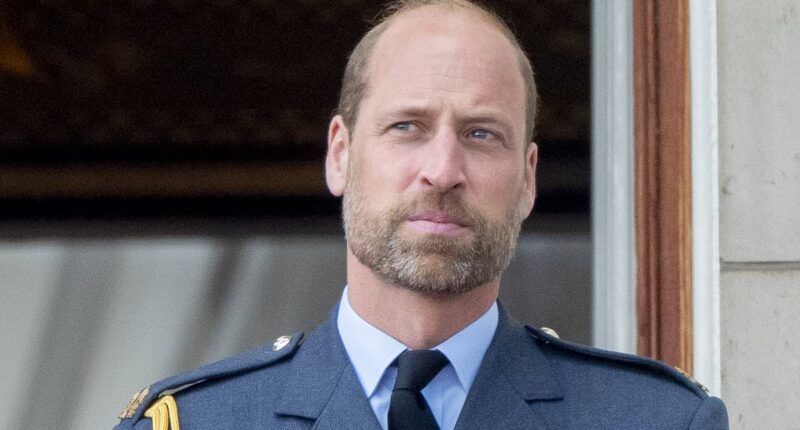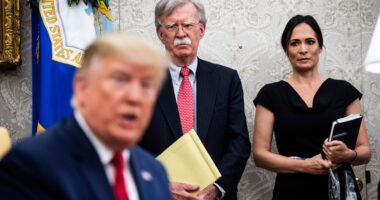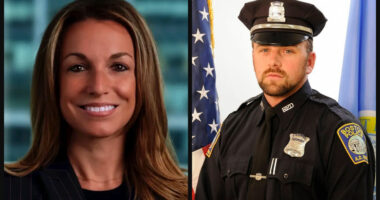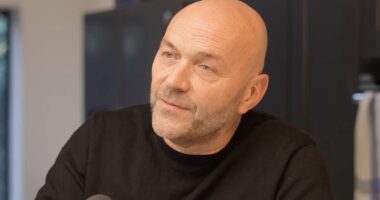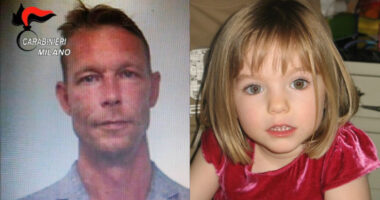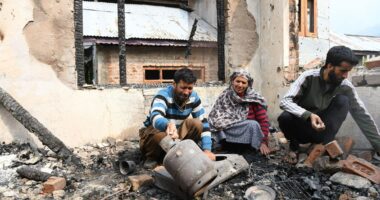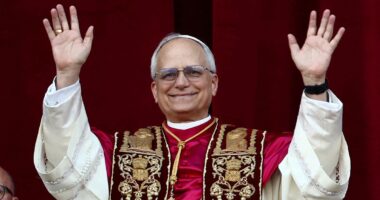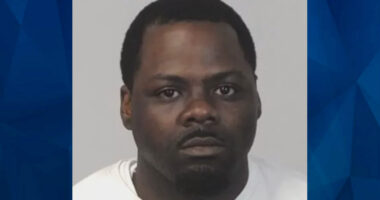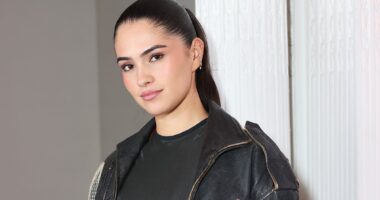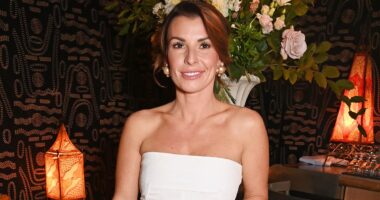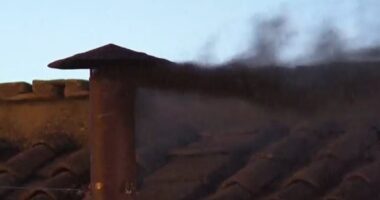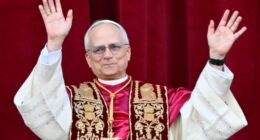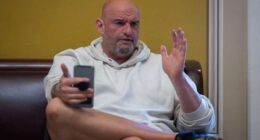The Prince and Princess of Wales are expressing their deep sadness and offering condolences to the families of wildlife rangers who lost their lives in an attack.
Unfortunately, in the Niassa Special Reserve in northern Mozambique, Domingos Daude and Fernando Paolo Wirsone were killed, with Mario Cristovao sustaining severe injuries after encountering an armed group. Two scouts are currently missing.
Taking to Instagram, William and Kate first shared a statement from United for Wildlife, which the heir to the throne founded.
In a statement, the Prince and Princess of Wales conveyed their sorrow over the devastating events at the Niassa Special Reserve and the unfortunate deaths of Domingos Daude and Fernando Paolo Wirsone, who were part of the Niassa Carnivore Project’s antipoaching team.
‘Our heartfelt condolences go to the families and colleagues of Domingos and Fernando as well as the severely injured scout Mario Cristovao who we hope makes a full recovery.
‘Our thoughts are also with the families of the two scouts that remain unaccounted for, we pray for their safe return and now the team in Niassa are doing everything possible to find them.
‘Rangers are on the frontline of nature protection, and these devastating acts of violence are a stark reminder of the grave danger these individuals face on a daily basis.
This highlights the critical need to increase our efforts to support the crucial work of nature’s guardians.’

The Prince and Princess of Wales are ‘deeply saddened’ and have shared their condolences with families of wildlife rangers who were killed in an attack. William pictured this week

William in another Story post added that the ‘attack is yet another brutal reminder of the immense sacrifices made by those protecting our natural world’
The attack took place on April 29, when an armed group reportedly attacked Mariri Environmental and Skills Training Centre and the Niassa Carnivore Project (NCP) Headquarters in the southeastern Niassa Special Reserve – in northern Mozambique.
According to a joint statement from both the Niassa Carnivore Project and the Mariri Environmental Centre, the attack comes as a result of an insurgent group.
‘This marks a troubling expansion of the ongoing conflict in northern Mozambique into one of Mozambique’s most important protected areas,’ the join release read.
‘Our team and assets were evacuated from our camp on the 20th of April following an attack on the Kambako Safari camp by the same group on the 19th of April.
‘Our antipoaching scouts were on site at Mariri to keep a presence, supported by soldiers of Forcas de Defesa e Segurança de Moçambique. The attack happened between 5pm and 6pm.’
In the aftermath, residents of the nearby Mbamba Village were reportedly forced to run ‘into the bush for safety’.

Taking to Instagram, William and Kate first shared a statement from United for Wildlife, which the heir to the throne founded
‘Over the past three days, our team has worked tirelessly to find and support affected staff and community members and bring them to safety to Mecula, the district capital,’ the statement added.
‘We are grateful that the rest of our team are safe and we can provide them with the support they need. We send our heartfelt condolences and unwavering support to the families of Domingos and Fernando and to the families whose family members are still missing. We are all devastated.
‘Our immediate priority is to ensure the safety and well-being of all affected. After that, we will rebuild and restart our work. Insecurity is deeply damaging – not only to conservation but also to the livelihoods of the ~ 70 000 people who call Niassa home and to tourism across the region.’
William in another Story post added that the ‘attack is yet another brutal reminder of the immense sacrifices made by those protecting our natural world’.
‘The reality is that being a ranger has become one of the most dangerous jobs on the planet,’ he added. ‘My thoughts are with all those affected and their families.’
William has long been an advocate for wildlife causes and conservation projects – and has supported the workers who champion it.
Just last week, to coincide with Their Royal Highnesses’ visit, The Royal Foundation of The Prince and Princess of Wales have announced its support for the Mull and Iona Ranger Service.
United for Wildlife, which was created by William, will fund two crucial new ranger roles and help to ensure the Isles’ natural beauty continues to be responsibly managed whilst keeping nature accessible to residents and visitors through education and engagement.

Pictured: Prince William meeting Lia the canine ranger who works on Signal Hill in Cape Town, in November

William has long been an advocate for wildlife causes and conservation projects – and has supported the workers who champion it. Pictured in 2016, during a visit to the Centre for Wildlife Rehabilitation and Conservation at Kaziranga National Park
Dr Tom Clements, Executive Director of Conservation, The Royal Foundation of The Prince and Princess of Wales commented: ‘Rangers play a fundamental yet often misunderstood and overlooked role. They do far more than just protect wildlife. They are educators, community supporters, researchers and scientists. They preserve cultural heritage, and they help safeguard and regulate the sustainable use of natural resources.
‘As we face increasing threats to our planet and natural world, the role of rangers in rural communities like Mull and Iona is invaluable for protecting the landscapes and environment on which communities rely.’
And in November, William joined Australian conservationist Robert Irwin, 20-year-old son of the late Steve Irwin, for a walk in Cape Town, while visiting South Africa for the Earthshot Prize awards – on which he also spoke with park rangers, firefighters, mountain rescue volunteers, biodiversity experts and youth volunteers.
They told him about the diversity of fauna and flora and the work they do to protect the environment while ensuring residents and tourists are able to enjoy the area.
William was met upon his arrival by Megan Taplin, park manager for Table Mountain National Park, and they also went on a walk to discuss local biodiversity.
He also met Cape Town City Mayor Geordin Hill-Lewis and Bathandwa Diniso, a youth representative for South Africa National Parks (SANParks) Honorary Rangers.
Elsewhere last year, the royal also spoke of the importance of protecting wildlife at the Tusk Conservation Awards.
In a four-minute speech the Prince warned ‘tonight is a reminder that our planet continues to face terrifying environmental concerns’.
He hailed the award winners for reminding ‘us of the importance of living at peace with nature’.
And speaking of George, Charlotte and Louis, he said ‘I want my children to live in a world where swallows still migrate, gorillas still live in the cloud forests of Uganda and rhinos still roam the arid rangelands of Namibia.’
William also presented the Prince William Award for Conservation in Africa to Nomba Gname, The Tusk Award for Conservation in Africa to Edward Aruna and the Tusk Wildlife Ranger Award to Claver Ntoyinkima.
The Tusk Conservation Awards are an annual event which recognises conservation leaders for their pioneering work protecting wildlife and supporting communities across Africa. William is patron of the awards.
The awards first took place more than a decade ago in 2013, thanks to the collaboration between the Prince of Wales and investors, Ninety One.
The ceremony, which is held at the world-famous Savoy hotel this evening, awarded three victors for their work in the field.
Speaking about the awards previously, William has said: ‘These awards which mean a great deal to me personally, play a huge part in our mission to preserve Africa’s precious wildlife for its people.’
